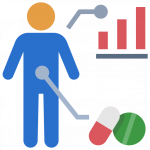ERNs
Improving care for people living with a rare disease across Member States
In 2017 24 European Reference Networks (ERNs) were launched, virtual networks involving more than 900 highly specialised healthcare units from over 300 hospitals across 26 EU countries.
The aim of the ERNs is to improve care for patients with rare or low-prevalence complex diseases, by facilitating discussion on such conditions and concentrating knowledge and resources across Member States. The criteria for establishing and evaluating the work of ERNs is set out in EU legislation.
Bringing together experts to address unmet need
95% of rare diseases do not have any authorised treatment. Unlocking solutions for patients with unmet medical need is a priority for the European Commission, as well as the wider industry and clinical community.
As clinical research networks, ERNs hold an incredible amount of knowledge and data on rare diseases, which can support the research and development of new therapies and support greater understanding of these conditions. However, there is no overarching framework for ERNs to engage with industry or other researchers to exchange and collaborate using this knowledge.
In 2019 the Board of Member States of ERNs published a Statement outlining the principles of ERN and industry collaboration, but there are restrictions on funding and governance arrangements which make collaboration practically challenging.
Together4RD will work to identify frameworks and structures to enable closer and more targeted partnership in the areas that can make a difference.
Our Aim
Unlocking opportunities
Our aim is to unlock opportunities for partnerships, particularly with the pharmaceutical industry, in areas such as:
Together4RD



